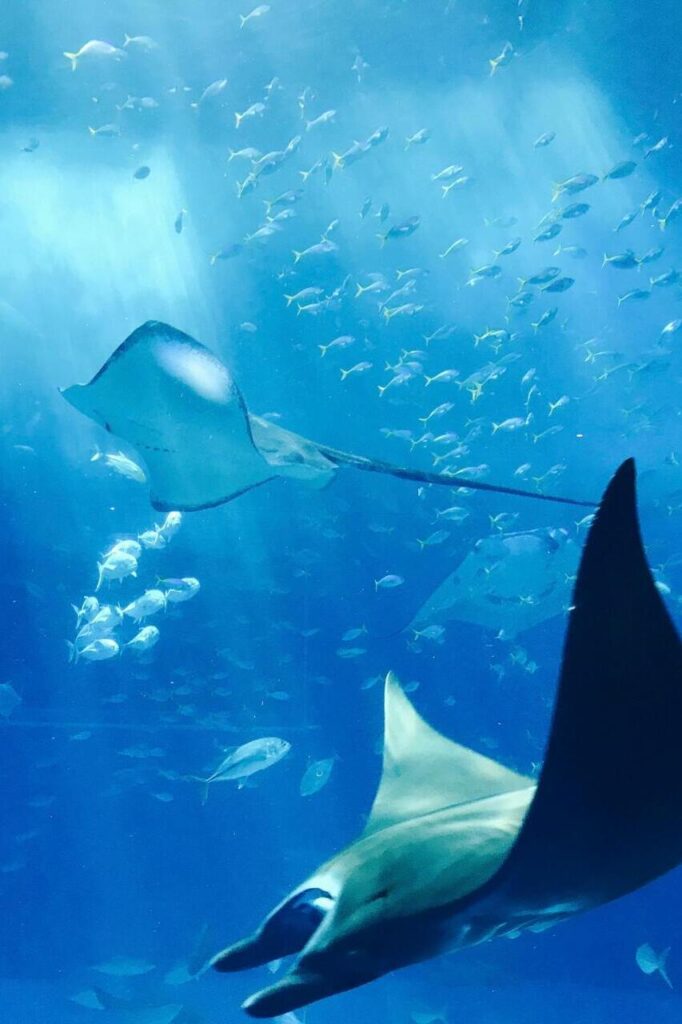
LIFE PROMETHEUS PROJECT
Objectives
LIFE-PROMETHEUS (PROMoting Elasmobranchs conservation THrough by-catch reduction, sustainable tourism, and alternative fisheries) is dedicated to marine biodiversity conservation in the Mediterranean Sea. The project focuses on reducing bycatch, promoting sustainable fisheries, and supporting eco-friendly tourism to protect sharks, rays, and other elasmobranch species. A key innovation is the use of electromagnetic deterrents to prevent the accidental capture of these species, while encouraging fishers to target Invasive Alien Species (IAS) such as lionfish and blue crabs to alleviate pressure on endangered marine populations.
Additionally, the project fosters sustainable tourism initiatives in elasmobranch aggregation areas, ensuring responsible ecotourism that generates alternative economic opportunities while conserving marine habitats. LIFE-PROMETHEUS aims to establish long-term, science-driven solutions for sustainable marine resource management through cross-border collaboration among Italy, Spain, France, Cyprus, and Greece.
P: PROMoting elasmobranchs conservation
R: Reduction of bycatch
O: Offering alternative fishing practices
M: Marine ecotourism development
E: Ecotourism as a sustainability tool
T: Technologies for bycatch reduction
H: Habitats essential for marine biodiversity
E: Engaging and educating the public
U: Using marine resources sustainably
S: Supporting responsible fishing practices
LIFE PROMETHEUS PROJECT
Activities and Milestones
LIFE PROMETHEUS implements bycatch reduction strategies by testing electromagnetic deterrents in twelve key biodiversity hotspots across the Mediterranean. The project also maps Essential Fish Habitats (EFH) for critically endangered sharks and rays, working with marine protected areas (MPAs) to enhance conservation policies and expand protected zones.
A major milestone includes the promotion of IAS fisheries, equipping fishers with training and specialized tools to shift toward sustainable harvesting of invasive species, such as lionfish and blue crabs. The project also supports sustainable diving tourism, establishing a Code of Conduct for responsible shark and ray watching, while promoting eco-labels and sustainable seafood awareness campaigns to engage consumers and businesses in marine conservation.
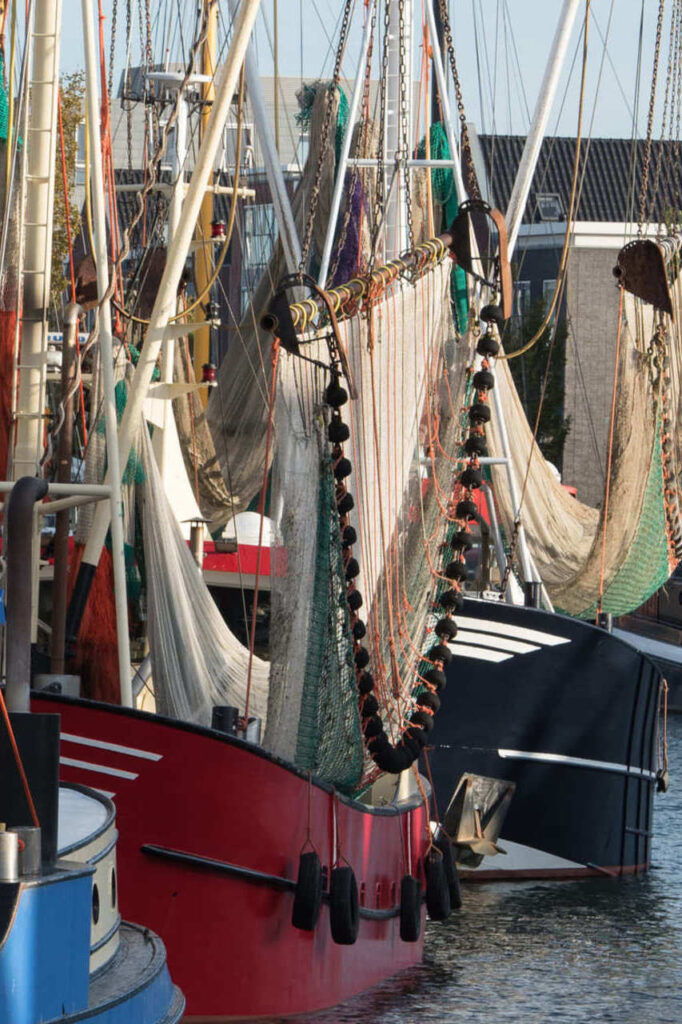
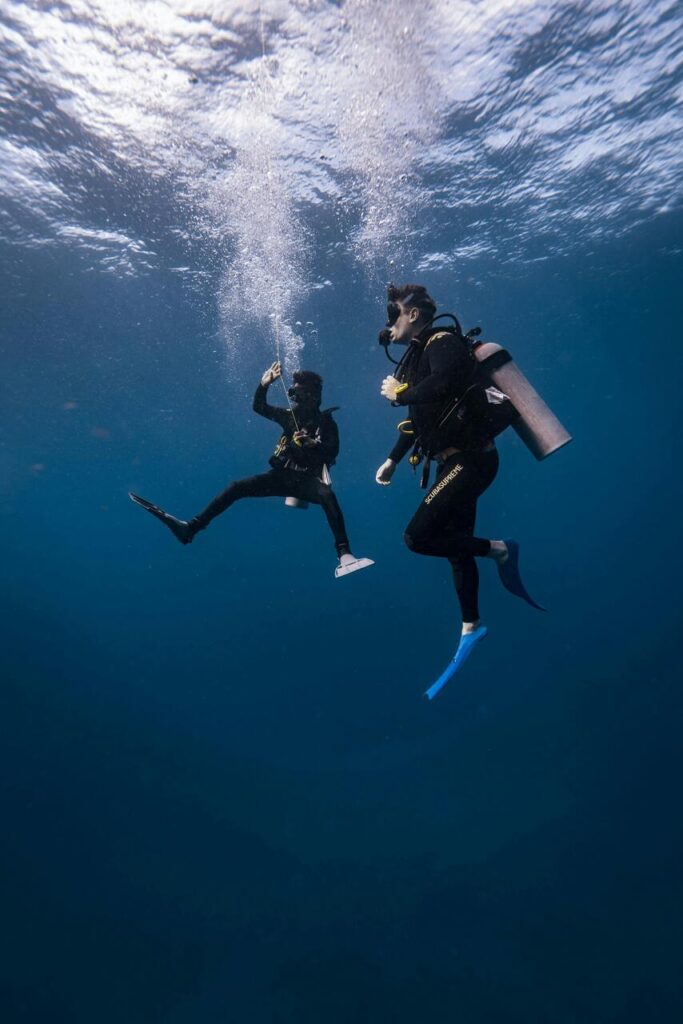
LIFE PROMETHEUS PROJECT
Project areas
LIFE-PROMETHEUS operates in twelve strategic Mediterranean locations, recognized as biodiversity hotspots and Essential Fish Habitats for sharks and rays. These areas serve as breeding, foraging, and nursery grounds for endangered species, making them critical for conservation efforts.
Key project sites include the Pelagie Marine Protected Area, the Western Ligurian Sea, Punta Falcone, the Strait of Sicily, the Northern Adriatic Sea, Southern Adriatic Sea (Italy), the Balearic Islands (Spain), the Gulf of Lion (France), the Ambracian Gulf, the Nestos delta, the Rhodes Island (Greece), and Cyprus. These locations were selected based on scientific assessments of elasmobranch populations and habitat vulnerability, ensuring conservation actions maximize ecological impact and protect key marine ecosystems.
LIFE PROMETHEUS PROJECT
Target Species
LIFE-PROMETHEUS prioritizes the conservation of eight endangered or critically endangered elasmobranch species, including the bottlenose skate (Rostroraja alba), rough skate (Raja radula), shortfin mako shark (Isurus oxyrinchus), blue shark (Prionace glauca), sandbar shark (Carcharhinus plumbeus), spiny butterfly ray (Gymnura altavela), bull ray (Aetomylaeus bovinus), and blackchin guitarfish (Glaucostegus cemiculus). These species are facing population declines due to overfishing, habitat destruction, and unintentional bycatch, making conservation actions essential for their survival.
In addition to these high-priority species, the project also supports seven other vulnerable or data-deficient elasmobranchs, including the porbeagle shark (Lamna nasus) and Mediterranean manta ray (Mobula mobular). By implementing bycatch mitigation measures and sustainable fisheries management, LIFE-PROMETHEUS seeks to restore ecological balance and ensure the long-term sustainability of Mediterranean marine ecosystems.
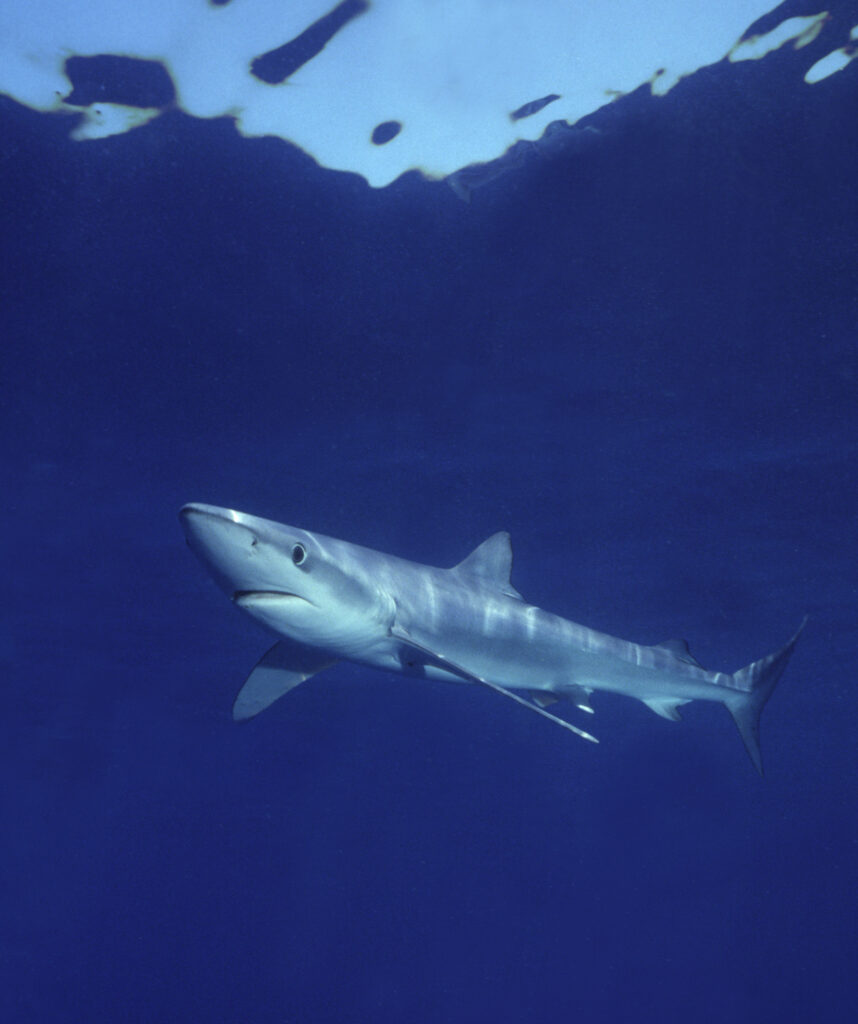
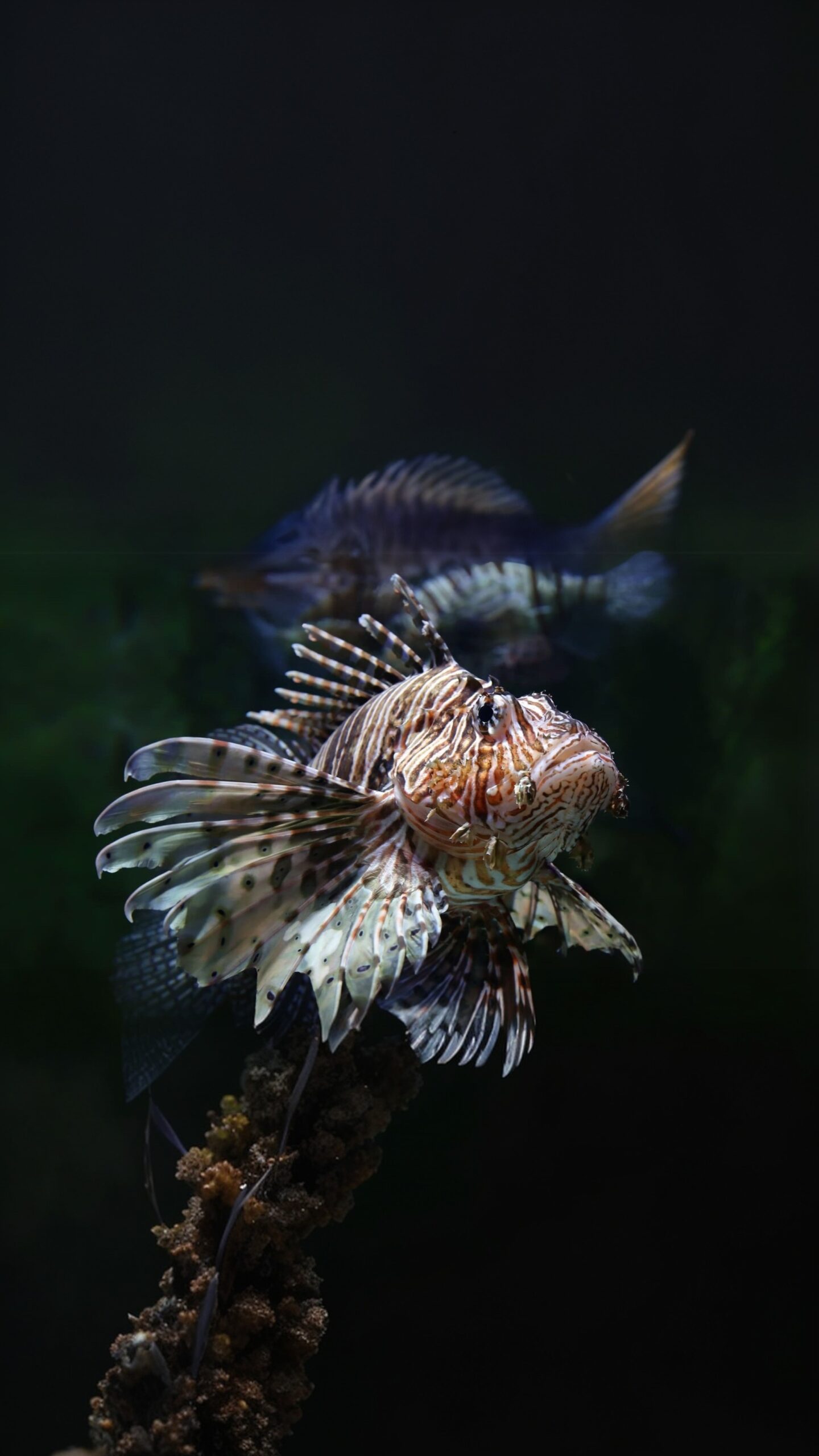
LIFE PROMETHEUS PROJECT
Targeted Invasive Alien Species (IAS)
The Mediterranean faces ecological and economic threats from Invasive Alien Species (IAS), which disrupt marine biodiversity and local fisheries. LIFE-PROMETHEUS targets three key invasive species: the lionfish (Pterois miles), the Atlantic blue crab (Callinectes sapidus), and the lesser swimming crab (Portunus segnis), all of which have rapidly expanded due to a lack of natural predators. These species outcompete native fish, alter food webs, and impact fisheries, creating an urgent need for management strategies.
LIFE-PROMETHEUS promotes sustainable IAS fisheries, encouraging fishers to harvest and commercialize invasive species as an alternative to targeting vulnerable sharks and rays. The project supports the adoption of specialized traps, targeted fishing methods, and culinary initiatives to increase market demand for IAS-based seafood. By managing these invasive populations, LIFE-PROMETHEUS contributes to marine ecosystem restoration while creating economic opportunities for Mediterranean coastal communities.
LIFE PROMETHEUS PROJECT
Solutions for Fishing Nets
To reduce the bycatch of endangered sharks and rays, LIFE-PROMETHEUS promotes the use of innovative deterrents applied directly to fishing nets and lines. These include permanent magnets, electropositive metals like magnesium, and electric devices that exploit elasmobranchs’ sensitivity to electromagnetic fields, deterring them without affecting target species. Field trials will test different configurations—control gear, deterrent-equipped gear, and procedural controls—across various Mediterranean sites with active fisher involvement. This approach, which has shown bycatch reductions of up to 80%, supports marine biodiversity while ensuring fishers’ compliance with regulations and protection of their livelihoods.
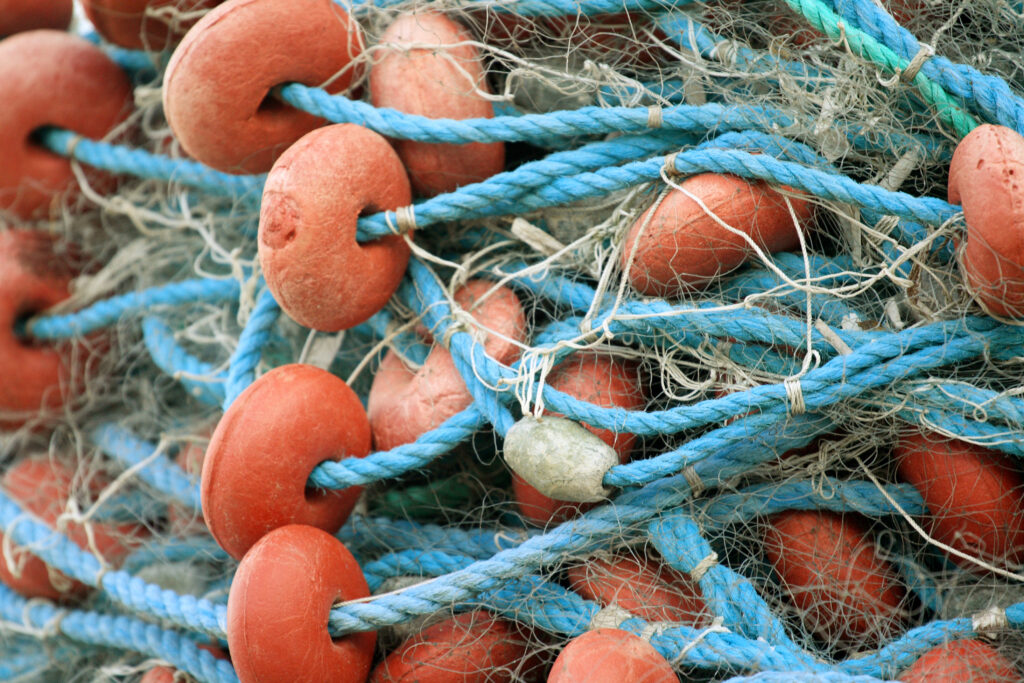
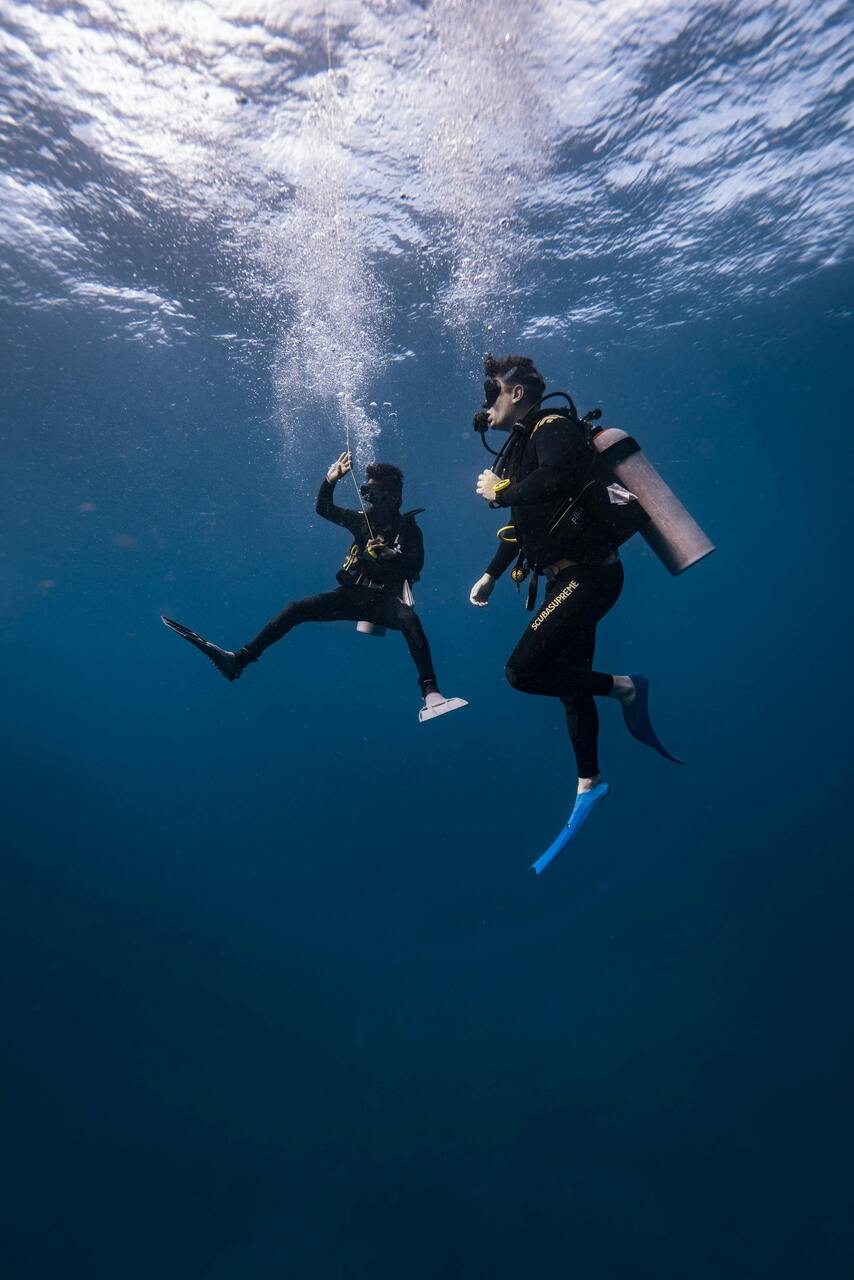
LIFE PROMETHEUS PROJECT
Sustainable Tourism
Here’s the text with key terms in bold:
LIFE-PROMETHEUS promotes sustainable tourism as a complementary strategy to protect elasmobranchs and support local economies. The project encourages responsible interaction with marine biodiversity by developing ecotourism activities in areas where sharks and rays naturally aggregate—such as guided wildlife tours, snorkelling excursions, and citizen science experiences. These initiatives raise public awareness, create alternative income sources for coastal communities, and reduce pressure on vulnerable species. In parallel, the project supports gastronomic diversification by using Invasive Alien Species (IAS), such as lionfish and blue crab, introducing them into local culinary offerings. Certification for tourism and hospitality operators will ensure adherence to best practices, reinforcing environmental and economic sustainability.
LIFE NETWORK
Programme: Programme for Environment and Climate Action (LIFE)
Title of the Project: PROMoting Elasmobranchs conservation THrough by-catch reduction, Ecotourism and alternative sUStainable fisheries
Acronym: LIFE23-NAT-IT-LIFE-PROMETHEUS
Duration: 01/10/2024 – 30/09/2029
Total Budget: € 7.170.996,62
Co-funded by the European Union. Views and opinions expressed are however those of the author(s) only and do not necessarily reflect those of the European Union or CINEA. Neither the European Union nor the granting authority can be held responsible for them.

